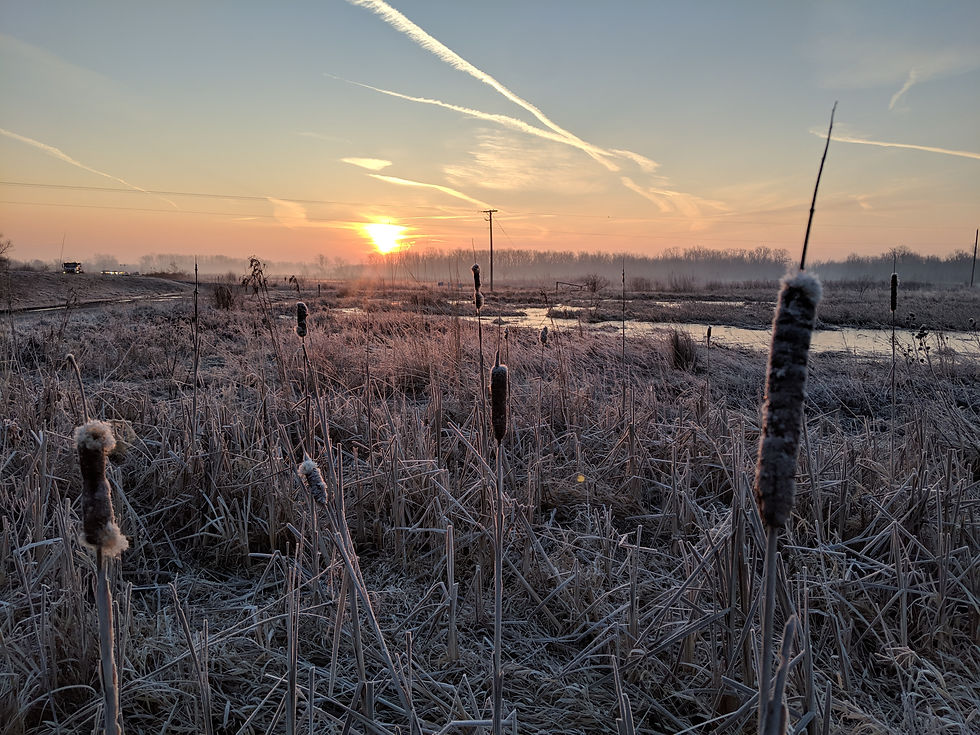What is your Environmental Worldview?
- David Keuhl

- Oct 28, 2025
- 3 min read
Updated: Oct 29, 2025

Do you view the Earth as sacred? Or perhaps you see a relationship between social justice and environmental protection? Are humans morally responsible for taking care of the planet? Is our domination of Earth related to our domination of marginalized groups? How you answer these and similar questions comprises your environmental worldview. Your worldview leads to different perspectives on the solutions that should be pursued to protect wetlands.
Take this quiz and see which worldview best matches your own, and which scholars and writers share your perspective. This quiz explores four perspectives: Deep Ecology, Social Ecology, Ecofeminism, and Stewardship. Which one best matches your worldview?
Goal: Reflect on each statement and choose the response that feels most true to you. Keep track of your answers (A, B, C, or D). At the end, we’ll tally them to see which philosophy you most resemble.
1. How do you view humanity’s relationship with nature?
A. Humans are a part of the web of life, not separate from or above it.
B. Unjust social and economic systems drive environmental exploitation.
C. The domination of nature and of women and other marginalized groups is related.
D. Humans are morally responsible for the planet and so must use resources wisely.
2. What is the root cause of ecological destruction?
A. A spiritual/philosophical separation from the natural world.
B. Capitalist social/economic/political systems that exploit the natural world and people.
C. Patriarchal approaches that belittle both women and the Earth.
D. Short-term thinking that ignores long-term ecological consequences.
3. Which statement best expresses your ethical view?
A. All living beings are valuable independent of their usefulness to humans.
B. Justice for people and nature are inseparable.
C. Relationships of equality and mutual respect should pervade among all living beings.
D. Humans are the caretakers of creation, appropriately balancing human and ecological needs.
4. What kind of environmental action do you most support?
A. Simple living, reduced consumption, and enhanced connection to nature.
B. Adopt political and economic systems that eliminate exploitation.
C. Promote equality within humanity and respect for nature.
D. Conservation of resources and the restoration of impacted ecosystems.
5. What do you think needs to change first?
A. The sense that humans are separate rather than part of nature.
B. The structures of politics and economics that encourage exploitation.
C. A cultural shift toward cooperation, partnership, and mutuality.
D. Humans need to learn to live within ecological limits.
6. What most motivates your concern for the environment?
A. A connection to nature and a realization of the interconnectedness of life.
B. A hope for economic, social, and environmental justice.
C. The need to end the domination of women and the natural world.
D. The desire to provide a healthy environment for future generations.
7. What kind of society do you see as truly sustainable?
A. Small, nature-integrated communities that function as part of their ecosystems.
B. Direct democracy that practices harmony with nature and economic cooperation.
C. A culture where the central values are empathy and equality.
D. A society that sustainably uses resources.
8. When you imagine “healing the Earth,” what comes to mind?
A. Honoring the sacredness of all life.
B. Achieving a fair and democratic society.
C. Showing empathy while expecting equality.
D. Protecting and restoring ecosystems.
Scoring & Interpretation
Mostly A’s → Deep Ecology
The natural world has intrinsic value, not merely utilitarian worth. The solution is a shift in human consciousness that acknowledges the sacredness and interconnectedness of all life.
You should read: Arne Naess or Aldo Leopold
Mostly B’s → Social Ecology
Political and economic systems that are hierarchical and exploitative are at the core of the problem. The solution is to increase justice and democracy.
You should read: Murray Bookchin or Elinor Ostrom
Mostly C’s → Ecofeminism
The oppression of women and the exploitation of nature derive from the same dualistic thinking that elevates some ways of being over others. The solution is acknowledging equality and living in a caring and empathetic way.
You should read: Vandana Shiva or Carolyn Merchant
Mostly D’s → Stewardship
Humans have a responsibility to care for the Earth. When they use resources, they should do so wisely and sustainably to be available to future generations.
You should read: Wendell Berry or Robin Wall Kimmerer






Comments